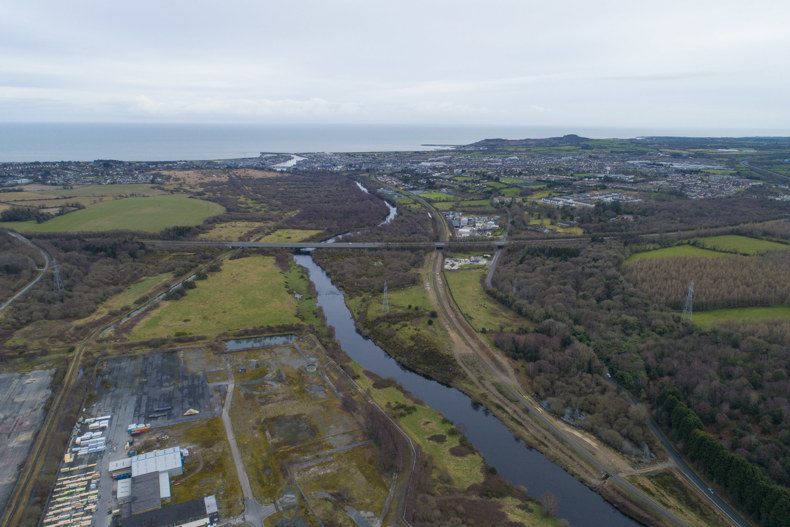Planning permission granted for Arklow Bank’s onshore grid infrastructure
30 May 2022
– Historic decision by An Bord Pleanála means SSE Renewables is first developer to secure onshore grid consent for an Irish offshore project –
Arklow, 30 May 2022: An Bord Pleanála has granted planning permission to SSE Renewables to develop the onshore grid infrastructure necessary to connect the 800MW Phase 2 of Arklow Bank Wind Park to Ireland’s electricity transmission grid.
The landmark decision by the Irish planning board is an historic first for Ireland’s offshore wind sector. It means leading renewable energy company SSE Renewables is the first renewable energy company to secure planning permission to develop onshore transmission grid infrastructure for an Irish offshore wind farm.
The decision is also a significant milestone for the delivery of the next phase of the Arklow Bank project. The consent comes just ahead of the upcoming application by SSE Renewables to the Irish Government for a Maritime Area Consent (MAC) to allow it to proceed to apply for planning permission for the project’s offshore infrastructure including offshore wind turbines, offshore substation platforms, and subsea cables.
In its planning decision issued today to SSE Renewables through its subsidiary Sure Partners Limited, An Bord Pleanála has approved the development of a 220kV substation at Avoca River Business Park in Arklow, Co. Wicklow, with an associated connection from the new substation to the existing national transmission network. The consented development also includes an underground cable route and associated infrastructure connecting the substation to the landfall point at Johnstown North, Arklow, where it will meet the planned subsea offshore cables connecting to the wind farm.
SSE Renewables is actively developing Phase 2 of Arklow Bank Wind Park which will be located in an area situated six to 13km off the Co. Wicklow coastline, to the east of Arklow.
The Arklow Bank Wind Park Phase 2 development, which builds on the existing GE-owned seven turbines that comprise the operational first phase of the wind park, is targeting delivery of up to 800MW of installed offshore wind energy under the Irish Government’s new Maritime Area Planning (MAP) Act process. This means the next phase of offshore wind energy development at Arklow Bank would have the potential to power almost 850,000 homes each year and offset around 830 billion kilos of harmful carbon emissions annually.
The offshore wind energy project is expected to require an investment of up to €2.5 billion and, under current planning timelines, is expected to deliver first power in 2028 and completion in 2029, subject to a final investment decision.
Kaj Christiansen, Arklow Bank Development Manager at SSE Renewables, said: “We’re delighted to have received this decision from An Bord Pleanála, and to have achieved this critical milestone in the development of the Arklow Bank Wind Park, Phase 2. This consent is the culmination of almost three years of work by members of our project team and our consultants, ARUP.
“This is the first ever planning decision for any component of an offshore wind farm of scale in Ireland. It marks a significant step forward for the country, for our planning authorities, and for industry as we work collaboratively to deliver offshore wind in Ireland at scale. The decision also brings SSE Renewables a step closer in delivering the next phase of Arklow Bank Wind Park, and our ambition to unlock investment, deliver jobs and local community benefits, and critically help achieve Ireland’s climate action targets by 2030.”
In another positive development for the project, SSE Renewables has been granted a Foreshore License by the Irish Government to enable it to commence key maritime site survey investigations. The survey works are expected to commence in May and will provide the Arklow Bank project team with a better understanding of the offshore site conditions. It is intended the results of the survey will help optimise the overall design of the wind farm.
The survey activities will be conducted by the DEME vessel ‘Neptune’ and are planned to be completed by the end of August 2022, subject to weather.

